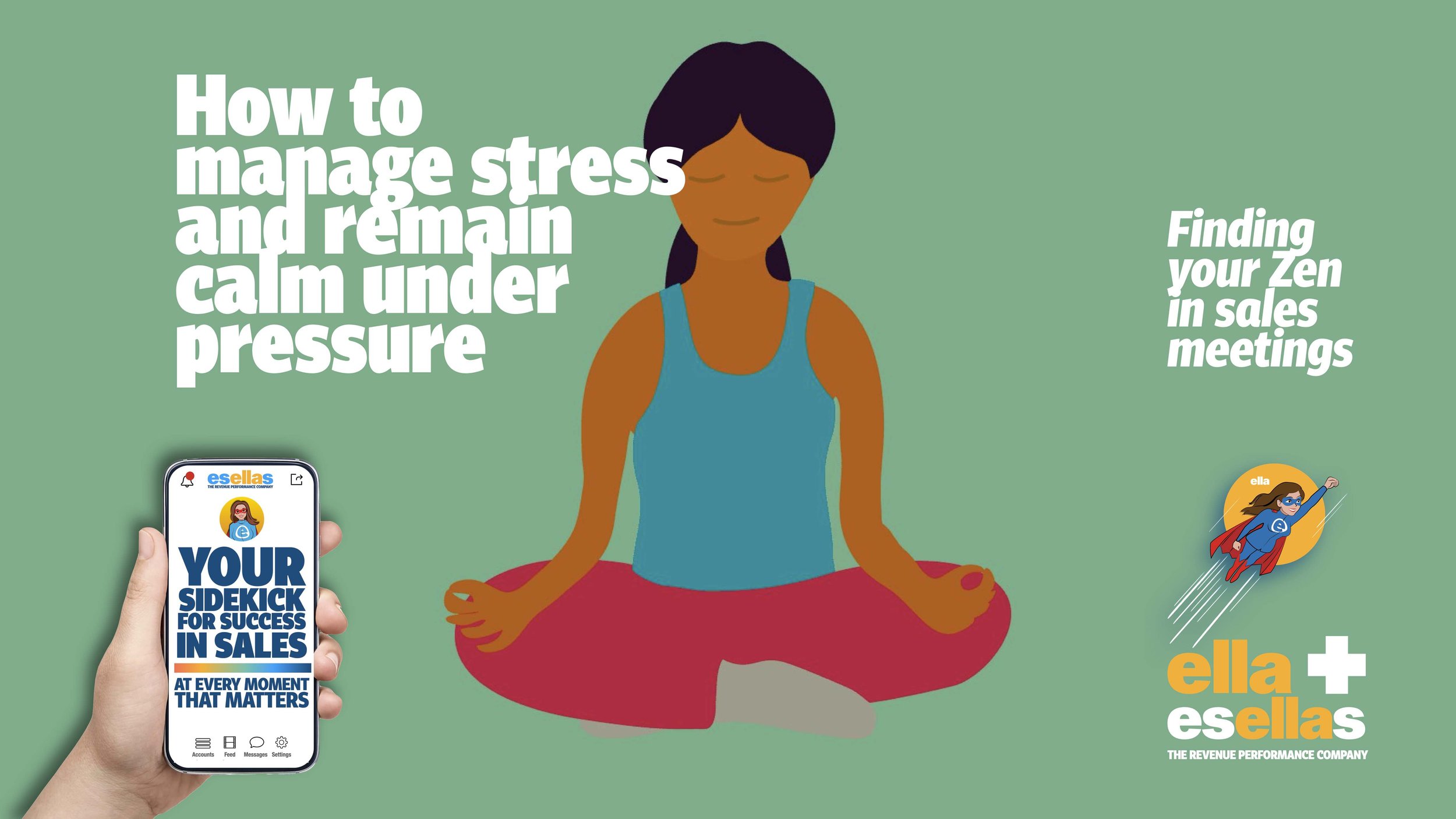How to Manage Stress and Remain Calm Under Pressure
Finding your Zen in sales meetings
Stress is a natural part of life, especially for goal-driven sales professionals. The greatest opportunities tend to be surrounded by the most pressure. But, just like sales, stress management is a skill you can study and improve upon.
Think of an Olympic athlete that trains for thousands of hours just to compete once every four years in front of the entire world and against the highest level of competition. They’re able to ascend beyond the pressure because they’ve broken down every movement to its rudimentary state and envisioned their success before it happened.
The more familiar you are with stress and its impact on your physical and mental state, the faster you’ll be able to develop resources for staying calm in the most high-pressure scenarios. Here are some tips on how to manage stress’s impact on your sales career:
Understand your reaction to stress
Stress is a natural physiological response to certain stimuli. This panic, or flight or fight, the response is coded into our DNA as a survival mechanism. The challenge is that this reaction is rarely appropriate to the modern human experience.
When you get stressed, it can affect your breathing, negatively impacting your ability to speak clearly and confidently. This can perpetuate further stress and frustration.
Learn what triggers your body’s stress response. Remind yourself ahead of sales meetings or while you’re experiencing stress at work that you’re not in a life or death situation. This sensation does have a time limit. You can combat these feelings by actively slowing down your breathing and filling your head with positive and productive affirmations.
Simulate stressful scenarios
Memory plays a critical role in the present moment. Fear and stress thrive on uncertainty. This is why experience and committed practice allows you to walk into any room with confidence, no matter how high the stakes are.
Familiarizing yourself with high-pressure conversations can transform your reaction to work-related stress. Utilize a combination of competitive analysis, consumer data, and critical thinking to predict expected and unexpected retorts to your sales pitches. You can even work with a colleague or friend to imitate different tones and moods in a safer environment to prepare for the real thing.
Control your internal dialogue
Give yourself the credit and confidence to talk yourself through a stressful situation. This will mitigate the buildup of pressure and negativity. If a critical pitch is going south, your ability to believe that you can turn it around will make all the difference. Never be the one to tell yourself no!
Channel stress into excitement, rather than anticipation
Right before a major sales pitch. After receiving negative feedback from your boss. In the middle of a sales call where you’re not at your best. Regardless of the situation, if something’s important to you, you want it to go well. So much so, that you may stress about the outcome. The catch is, whether or not you’re anxious or excited, both feelings create the same physiological response.
Train yourself to always focus on the excitement of getting to sell, meet new leads, and learn from failures. It will help you enter meetings with greater composure and move on from setbacks with renewed confidence.
Stay Zen and happy selling!


